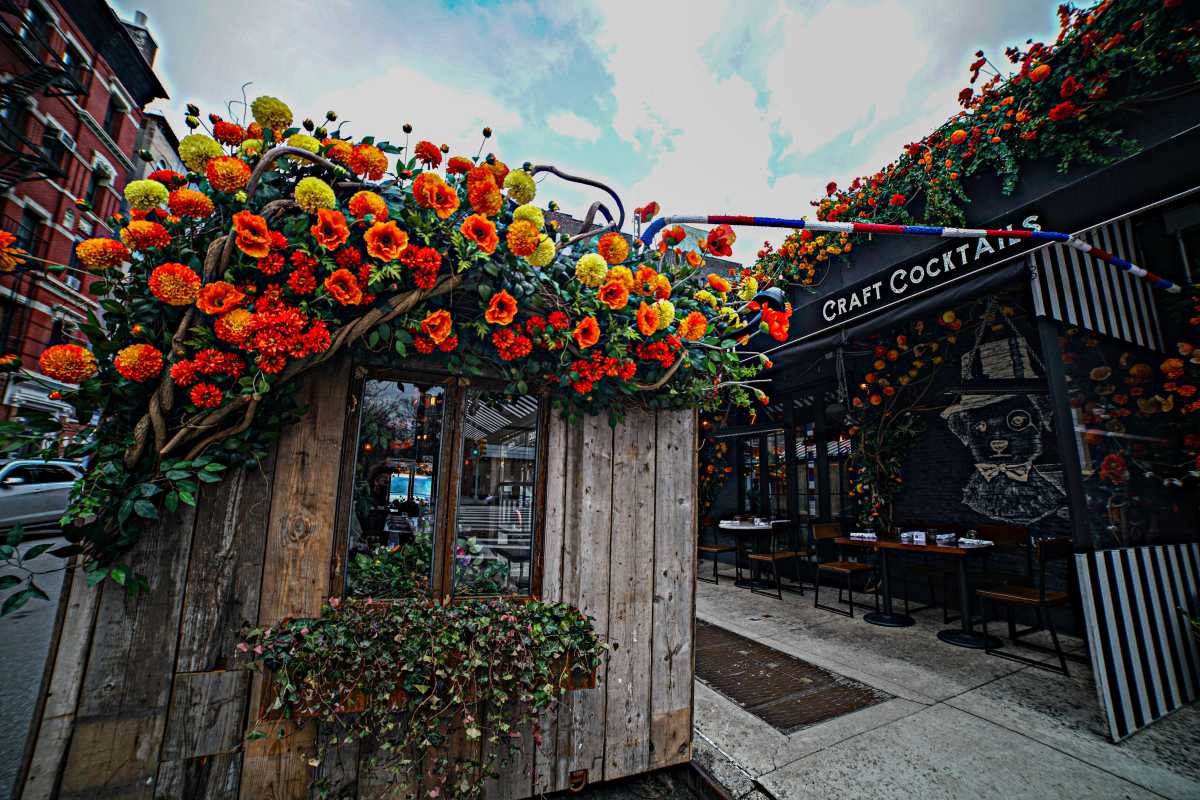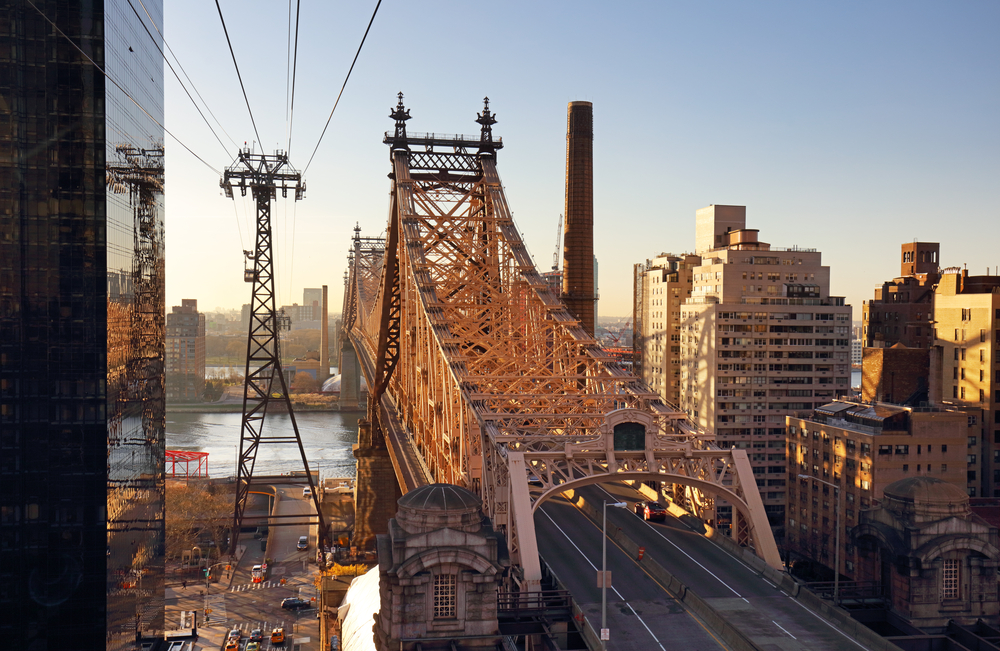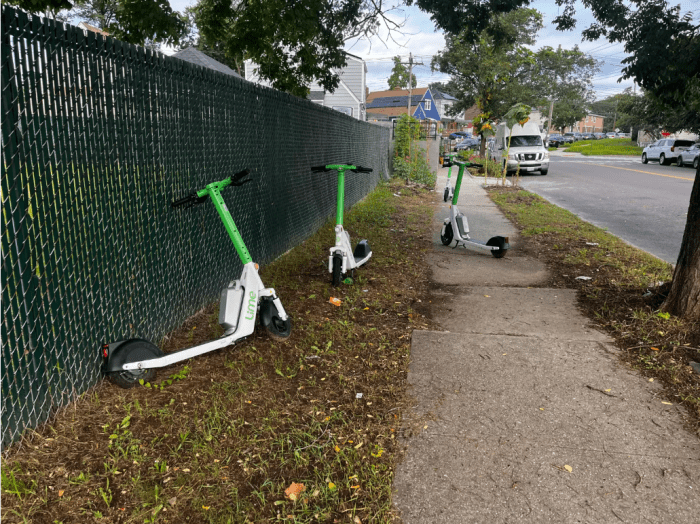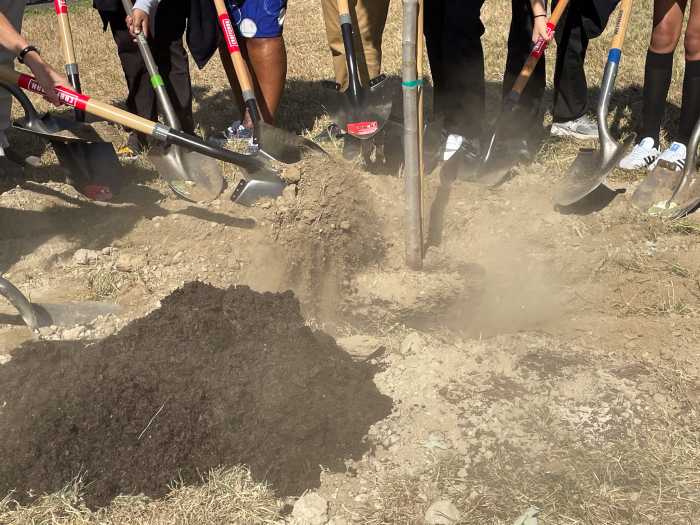New York City restaurants must remove their outdoor dining structures from the street by the end of next week to comply with the rules of the city’s permanent al fresco dining program which the City Council passed and Mayor Eric Adams signed into law last year.
The permanent outdoor eating program, Dining Out NYC, allows restaurants to keep dining sheds on the sidewalk year-round, albeit in a modular setup easier to put up and take down than the large structures that defined the COVID era in the city. But streeteries in the roadway are only allowed between April and November, and must be taken down for the winter by next Friday, Nov. 29, so the curb can be restored for automobile parking.
Restaurants out of compliance could face fines of up to $1,000. Roadway setups can return on April 1.
The implementation of the new rules has coincided with a sharp decline in permits for outdoor dining setups. A spokesperson for the Department of Transportation (DOT), which administers Dining Out NYC, said the agency received 3,655 license applications from 2,981 restaurants for outdoor setups. That includes 1,569 for sidewalk-only, 738 for roadway-only, and 674 for both.
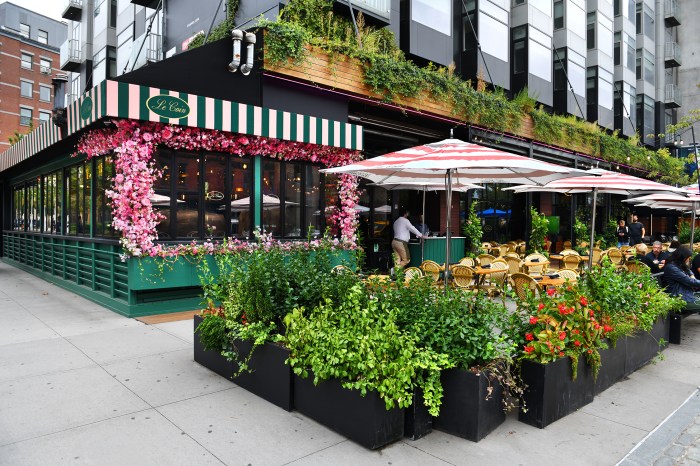
While a significant increase from the pre-COVID status quo, it’s a sharp decline from the number issued under the temporary program, Open Restaurants. More than 13,000 permits were issued to restaurants over four years; a spokesperson for DOT said the agency’s estimate of peak participation is around 6,000-8,000, based on a census done this summer that logged about 5,000 street setups.
Many restaurateurs blame the new program, citing the onerous and expensive requirement to take down and store roadway dining during the winter.
“It just wouldn’t be worth it. Time and effort and labor and storage,” said Sean O’Shea, the proprietor of Sound + Fury Brewery in Downtown Brooklyn. “Unless businesses are desperate, I think it will diminish to a standpoint that most places won’t put them back up again.”
The outdoor dining structure at Sound + Fury — then known as Circa Brewing Co — cost about $100,000, said O’Shea, but paid for itself through an increase in customer capacity and revenue. This summer, though, DOT came and took down the shed so a developer could stage construction for a building project across the street, O’Shea said. He does not intend to restore it come the spring.
“We’ve had a loss of earnings, which is impacting our bottom line, and our ability to stay open is to squeeze things,” said O’Shea. “We’ve managed not to have to directly lay anyone off because of that, but it’s definitely impacted our ability to employ more people.”
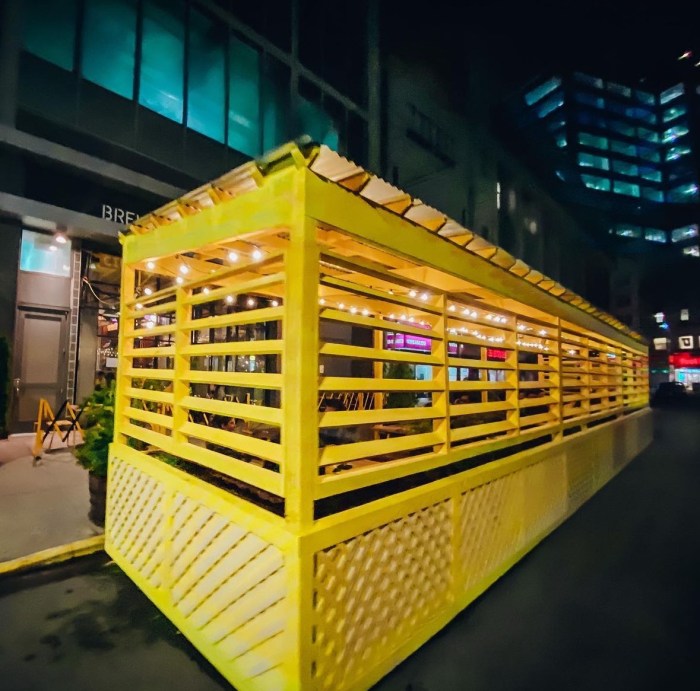

Under a state of emergency at the height of COVID-19, the city authorized a significant expansion of its existing outdoor dining program, significantly liberalizing the permitting process and allowing dining sheds to proliferate throughout the city, transforming the streetscape and saving what officials said amounted to 100,000 restaurant jobs.
However, al fresco eating did have enemies. They complained about noise, rodent infestations, sanitation issues, and sheds taking up what previously had been parking spots. The program was the subject of multiple lawsuits against the city.
The permanent program passed the City Council last year and was signed by the mayor. It was hailed as a success by both politicians and restaurant industry reps. However, some business owners see the seasonal and modular requirements as poison pills, making outdoor dining financially ruinous for all but the deepest-pocketed restaurants.
“Any company that wants to rent the stuff has crazy prices in mind; they just are not compatible with reality,” said Charlotta Janssen, who has owned French bistro Chez Oskar in Bedford-Stuyvesant since 1998. “On top of building it and taking it down and putting it up, having to store it is impossible. And that’s really too bad, because it’s gonna stop a lot of people from setting up roadside.”
Janssen feels that her streetery, inspired by Parisian outdoor cafes, helped beautify the streetscape, in contrast to horror stories of rat-infested sheds.
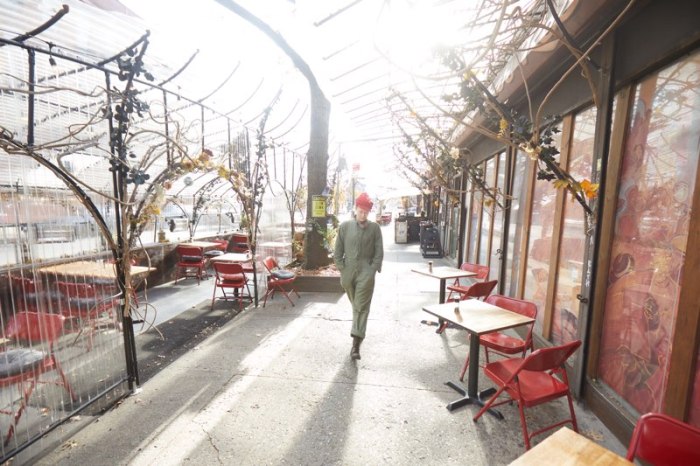
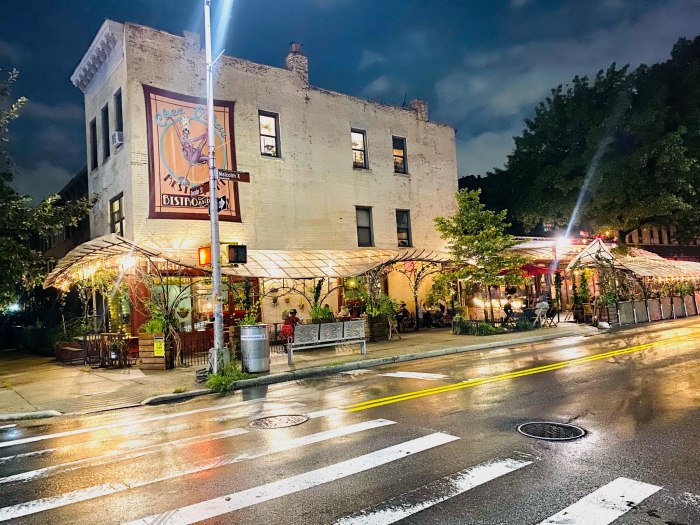
“People who came up with beautiful ideas are being punished, and the people with shitty setups are being used to punish the people with beautiful setups,” said Janssen. “Empty storefronts are homes for rodents, and nobody, no landlord is held accountable for taking care of empty storefronts.”
Asked Tuesday if he accepts any blame for the city’s decline in outdoor dining, Mayor Adams attempted to pass the buck onto the City Council.
“It passed in the City Council. We signed it into law. And now it’s being executed. Anytime you execute something new, there’s a slow start-up,” Adams said at his weekly press conference. “And then it moves forward. But to all of a sudden say, well, okay, it’s a drop-off, so now you have to take the blame. No, no, I don’t.”
Council Speaker Adrienne Adams, meanwhile, refused to answer questions about outdoor dining on Tuesday when approached by amNewYork Metro. Following publication, a spokesperson for the Speaker argued outdoor dining is “alive and well,” and said that the new regulations address “some complaints” lodged with the old sheds.
“Outdoor dining is alive and well, with more restaurants applying to participate in the new permanent program than its pre-pandemic version,” said spokesperson Mara Davis. “In the case of these local and small businesses, the Council remains consistent in encouraging DOT to effectively work with our city’s restaurants to improve this program’s administration.”
With reporting by Ethan Stark-Miller
Updated following publication with comment from Speaker Adams



